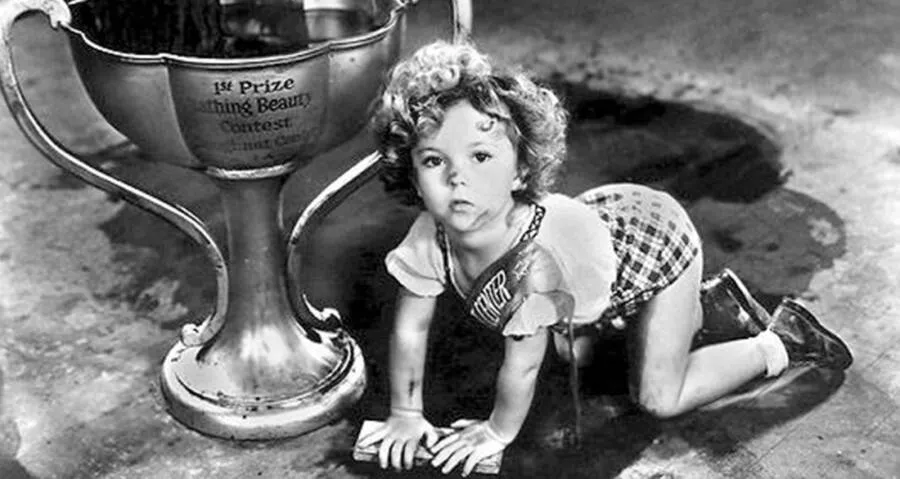"Sanford and Son" is an iconic American sitcom that aired from January 14, 1972, to March 25, 1977. Created by Norman Lear and developed by Bud Yorkin, the show became a cultural phenomenon and one of the most beloved sitcoms of its time. Starring Redd Foxx as the cantankerous junk dealer Fred G. Sanford and Demond Wilson as his good-hearted son, Lamont, "Sanford and Son" blended humor, heart, and social commentary to create a timeless and endearing series. In this 2000-word article, we will explore the cultural significance, comedic brilliance, and lasting legacy of "Sanford and Son."
(Watch the video below)

Plot and Setting

"Sanford and Son" is set in the Watts neighborhood of Los Angeles, California, and centers around the Sanford Salvage Yard, owned by Fred G. Sanford. Fred is a grumpy and opinionated junk dealer with a penchant for sarcastic humor and big dreams of striking it rich.

His son, Lamont Sanford, works with him at the junkyard and serves as the voice of reason in the duo. Lamont is level-headed, kind-hearted, and often finds himself caught in the middle of his father's schemes and antics.

The show also features Aunt Esther Anderson (played by LaWanda Page), Fred's sister-in-law, and her husband, Woodrow "Woody" Anderson (played by Raymond Allen). The dynamic between Fred and Aunt Esther is one of the show's most famous running gags, as they frequently exchange insults and jabs.
Redd Foxx: The Master of Comedy

At the heart of "Sanford and Son" is the comedic genius of Redd Foxx. Foxx's portrayal of Fred G. Sanford is nothing short of brilliant, as he brings the character to life with impeccable timing, razor-sharp wit, and a unique blend of humor and heart.
Fred's signature catchphrases, including "You big dummy!" and "I'm coming, Elizabeth!" became synonymous with the character and added to the show's charm and humor. Foxx's ability to deliver witty one-liners and comedic zingers set the standard for sitcom humor and made "Sanford and Son" a laugh-out-loud experience for audiences.
The Father-Son Dynamic
The heart of "Sanford and Son" lies in the relationship between Fred and Lamont Sanford. Their comedic banter, heated arguments, and tender moments created a dynamic and relatable father-son relationship that resonated with viewers.
While Fred often poked fun at Lamont's lack of success with women or his financial aspirations, it was evident that he loved his son deeply and had his best interests at heart. Likewise, Lamont's exasperation with his father's antics was tempered with a deep respect and love for the man who raised him.
This genuine and affectionate portrayal of a father-son bond added depth and heart to the show, making it more than just a sitcom about junk dealers—it became a touching exploration of family dynamics and the complexities of love and loyalty.
Tackling Social Issues

"Sanford and Son" was more than just a hilarious comedy; it was a show that fearlessly tackled social issues of its time. Through its humor, the show addressed racial prejudice, economic struggles, and the challenges faced by African-Americans in the 1970s.

The character of Fred Sanford, an African-American junk dealer with big dreams, challenged stereotypes and portrayed a man with hopes and aspirations beyond his current circumstances. This portrayal of an African-American lead character pursuing his dreams was groundbreaking and resonated with audiences of all backgrounds.
Aunt Esther: A Memorable Supporting Character

Aunt Esther, portrayed by LaWanda Page, was a standout supporting character on "Sanford and Son." She was Fred's Bible-thumping, fiery sister-in-law, and her interactions with Fred were legendary.

The dynamic between Fred and Aunt Esther, known for their fiery exchanges and memorable insults, added a comedic spark to the show. LaWanda Page's portrayal of Aunt Esther earned her praise and made the character an essential part of the "Sanford and Son" legacy.
The Influence of "Steptoe and Son"

"Sanford and Son" was based on the British sitcom "Steptoe and Son," created by Ray Galton and Alan Simpson. "Steptoe and Son" featured a similar premise of a father-son junk dealer duo and aired in the United Kingdom from 1962 to 1974.

Norman Lear adapted the concept of "Steptoe and Son" for American audiences, infusing it with his unique style of social commentary and humor. "Sanford and Son" retained the heart and humor of its British predecessor while infusing it with a distinct African-American perspective and cultural relevance.
Embracing Ensemble Cast and Diversity

"Sanford and Son" embraced diversity through its ensemble cast, featuring African-American, white, and Latino characters. The show provided opportunities for talented actors from different backgrounds to showcase their comedic talents and contribute to the show's success.
The inclusion of diverse characters and cultural references added authenticity and depth to the show, making it more representative of the rich cultural tapestry of America.
Award Recognition and Popularity

"Sanford and Son" received critical acclaim and enjoyed a dedicated fan base during its run. The show earned four Golden Globe Award nominations, including a win for Best Actor in a Television Series – Musical or Comedy for Redd Foxx in 1973.
While the show never won an Emmy Award, it garnered several nominations and became one of the top-rated sitcoms of its era. "Sanford and Son" left an indelible mark on popular culture and continues to be celebrated for its humor, heart, and lasting impact on the landscape of American television.
Legacy and Enduring Appeal

"Sanford and Son" remains a beloved classic that continues to entertain and resonate with audiences today. Its blend of humor, heart, and social commentary ensures that new generations of viewers will discover and appreciate the comedic brilliance of Redd Foxx and the endearing charm of "Sanford and Son."
The show's groundbreaking representation of an African-American family pursuing the American dream set a precedent for greater diversity and inclusion in television. By showcasing a successful African-American lead character and addressing important social issues, "Sanford and Son" challenged stereotypes and contributed to the changing landscape of television representation.
Conclusion

"Sanford and Son" was more than just a sitcom; it was a trailblazing show that redefined comedic brilliance and representation on television. Redd Foxx's iconic performance as Fred G. Sanford, along with the heartwarming father-son dynamic between Fred and Lamont, made "Sanford and Son" a beloved classic that continues to bring joy and laughter to audiences.

Through its humor, social commentary, and diverse ensemble cast, "Sanford and Son" left a lasting legacy as a groundbreaking sitcom that challenged societal norms and pushed the boundaries of representation on television. As viewers continue to revisit and celebrate the misadventures of the Sanfords, the legacy of "Sanford and Son" as a timeless and endearing sitcom endures, ensuring its place in the hearts of audiences for generations to come.



